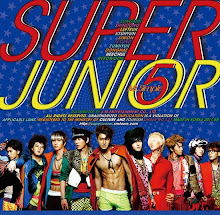With the plethora of idol groups out there on the scene, one can't help but wonder: how much money do these "kids" make? Sure they gain popularity through their respective groups, but it's a known fact that each and every member isn't given the same amount of attention and gigs. And let's say we focus on just one group member. Do they get to keep the money that they themselves worked for? Or do they have to split it among their other group members?
Let's use Nickhun of 2PM as an example. He shoots an ice cream commercial here in Korea, followed by a beverage commercial shoot over in Thailand. Then he returns to Korea and does some appearances on variety shows, only to then star in a TV drama. Out of all those jobs, what will Nickhun be able to keep as pay? Well, the ice cream commercial in Korea will be equally divided among the five other 2PM members. However, Nickhun will be able to keep all of the pay from the Thailand commercial shoot. Variety program appearances also get divvied up among the others, though the drama pay will be pocketed by Nickhun entirely. This is according to the initial contracted agreement among the six members and JYP Entertainment. Nickhun must split everything with the exception of drama roles and jobs in his homeland, Thailand. Six members may seem like a lot, but what about some of the other idol groups out there with 9 members? 10? 13? The matter of pay presents a very complicated situation.
JYP along with CUBE Entertainment follow the equal pay distribution system. The explanation from a JYP official: "If a member gets some individual work, it's because he's ultimately a member of the respective idol group." Therefore, the pay should be equally divided among the people who make the group possible; all of the people. These days, Lee Gi-gwang of BEAST and Hyuna of 4minute get more solo gigs than their other members, yet their pay is still shared among all of them.
However, there are more entertainment agencies that follow another system. The system of taking home what you yourself earned. For example, SM Entertainment, which is known to multi-task its entertainers. Some of its popular groups feature one or two members that are more popular than the rest. Prime examples being Yoona or Taeyeon of Girls Generation or Kim Hee-chul or Lee-teuk of Super Junior. One entertainment official even divulged, "Because the difference in pay between the highest paid Super Junior member and the lowest paid Super Junior member is so big, their vibe [together] is a bit weird."
In the case of Pledis Entertainment, the name behind After School which features UEE and Park Gahi or Core Contents Media which backs T-ara, the group boasting Eun-jung and Ji-yeon, each member also keeps what they earn. However, whenever the stars feature on variety programs, Core Contents Media gets to keep the entire pay. The company sees this as justified because appearances on variety programs are to promote the group's album anyway. Also, the pay per episode isn't even that much so it's not like the girls are taking that big of a hit.
So which way is the "better" system? One entertainment insider explained, "Whether you do it this way or that way, there's bound to be complaints. In the case of splitting the pay, members with more active schedules have the most complaints. As for systems where each member gets to keep their own pay, the less popular members [with less work] has the most complaints. There's a reason behind the fact that idol groups form easily and break up easily."
Source: http://world.kbs.co.kr/english/entertainme...il.htm?No=14605





